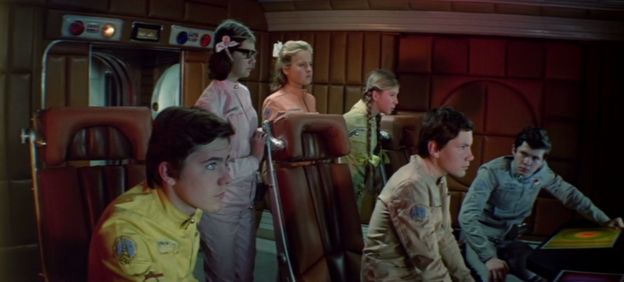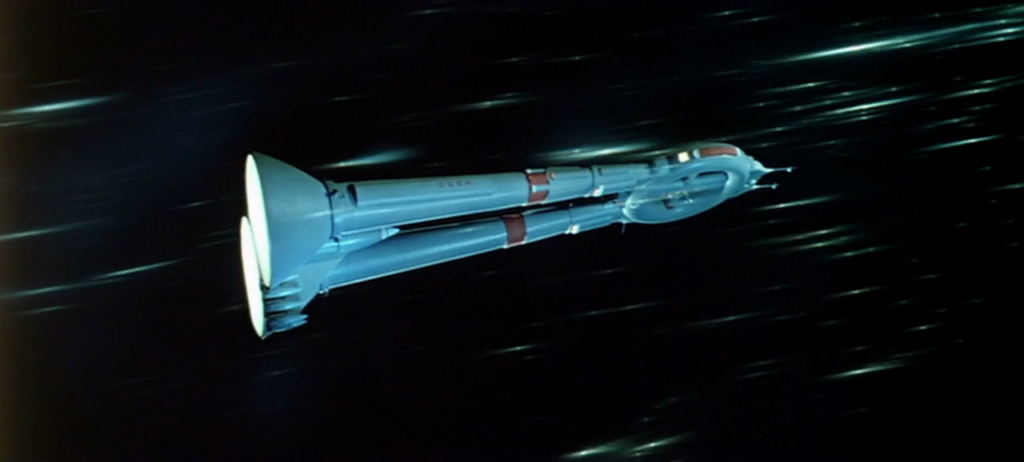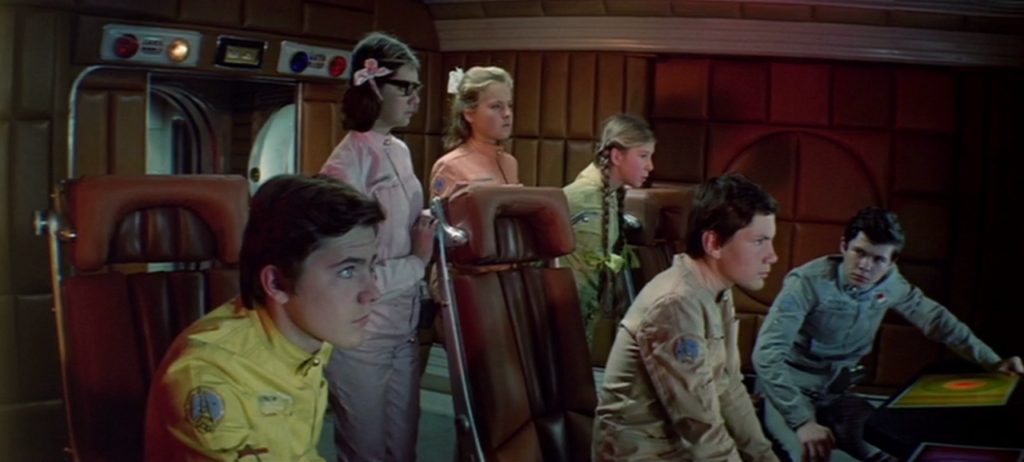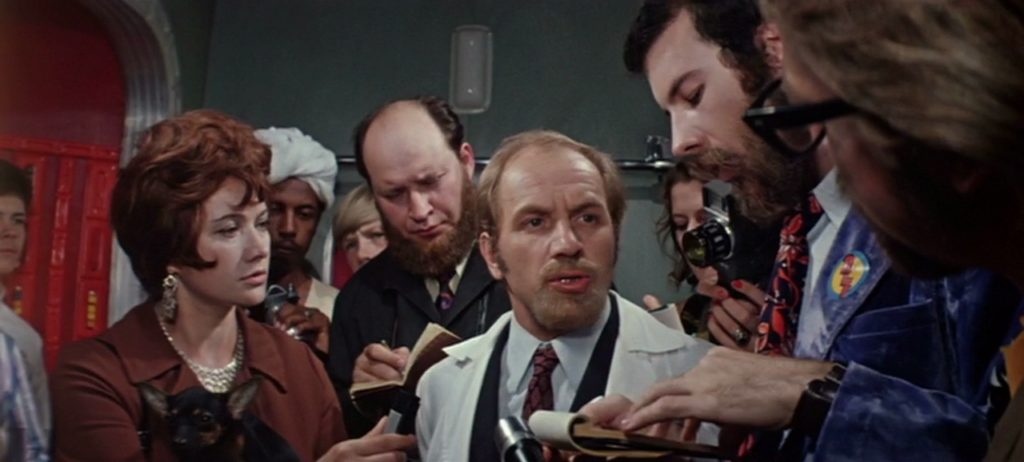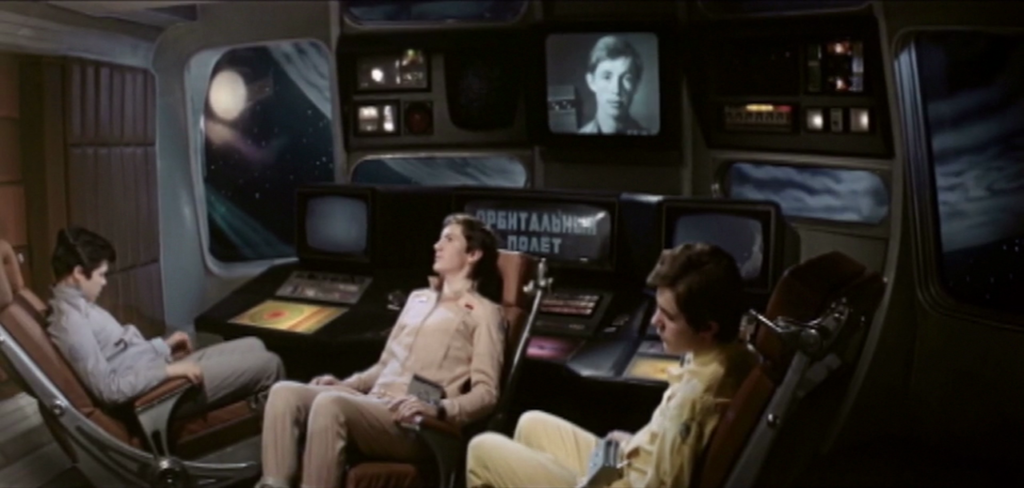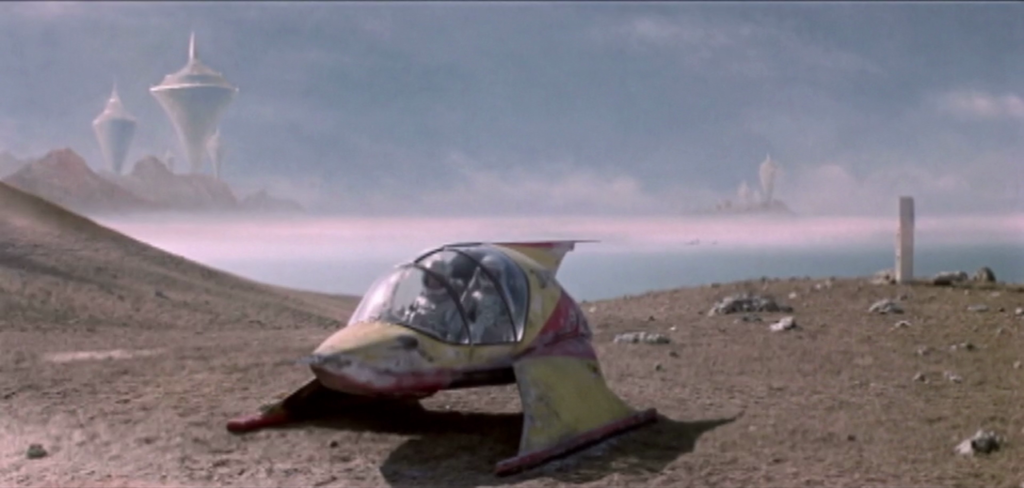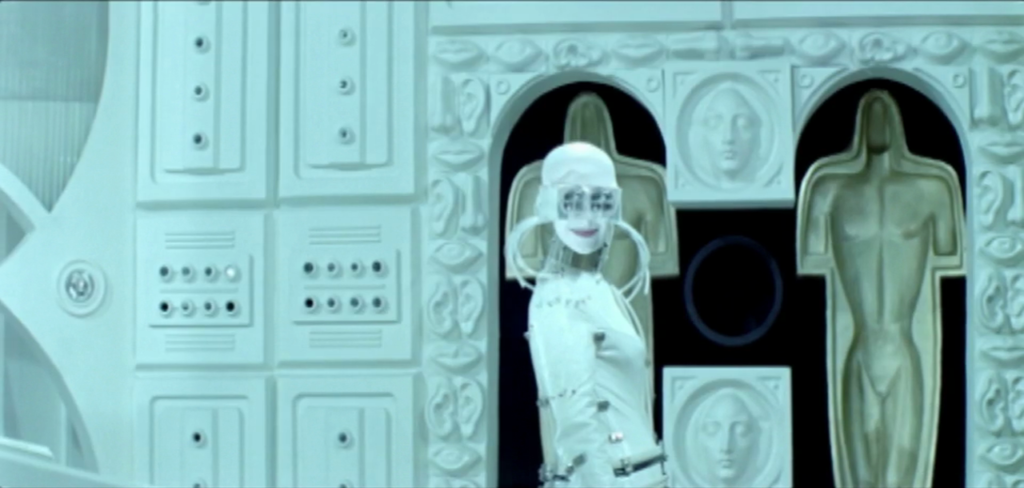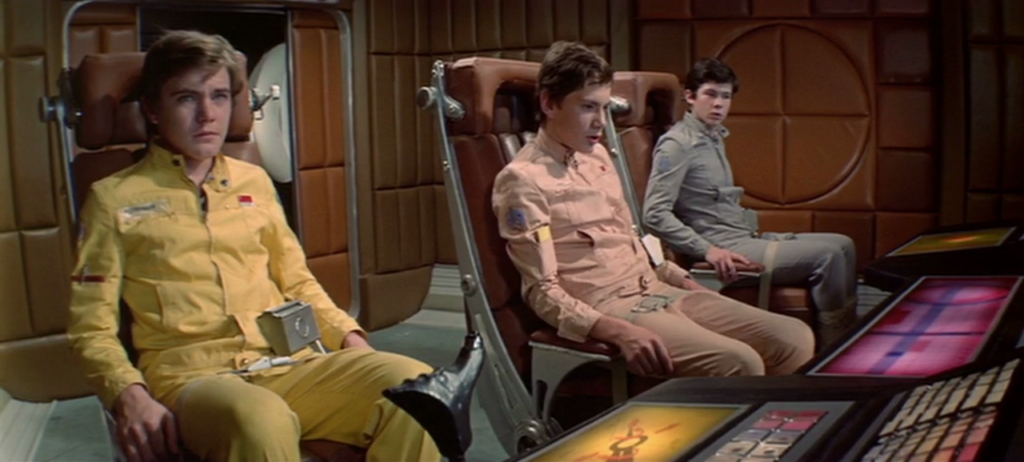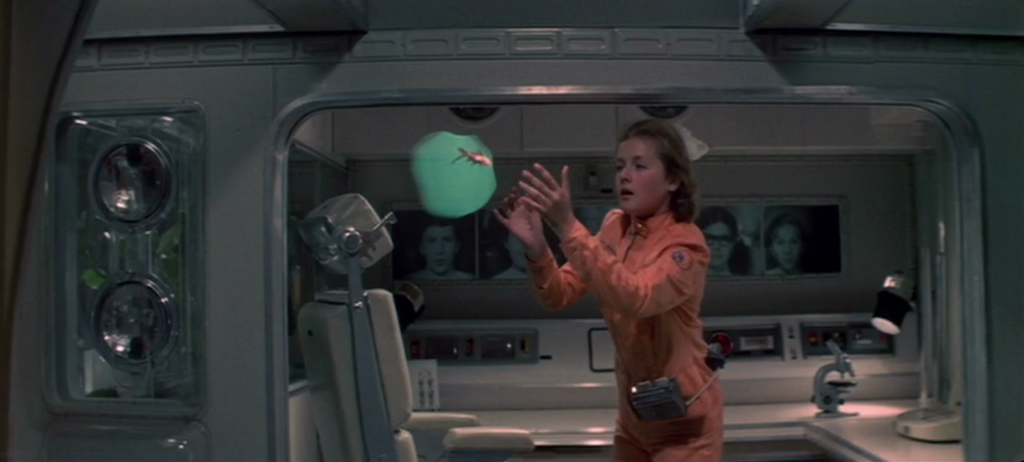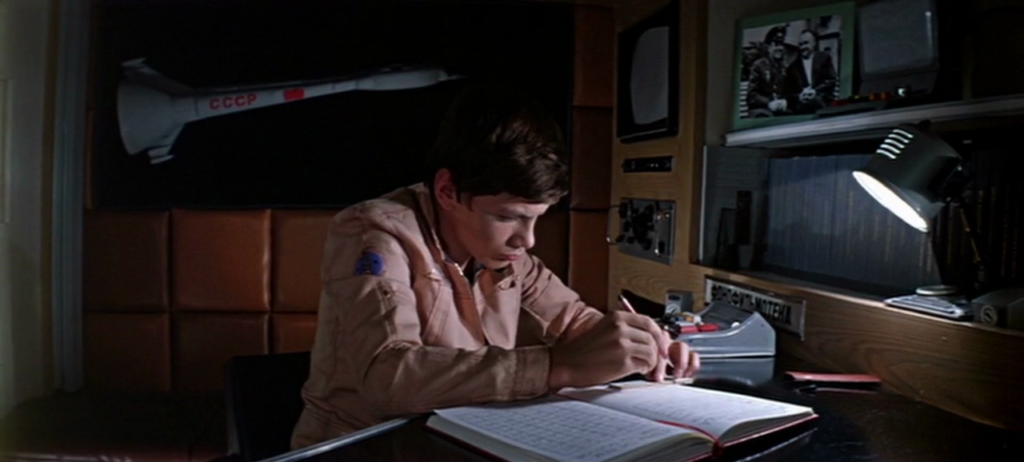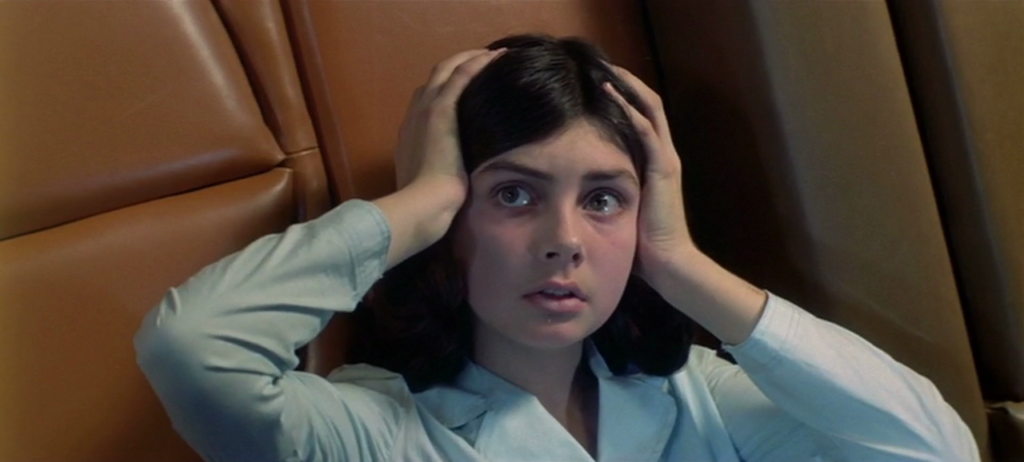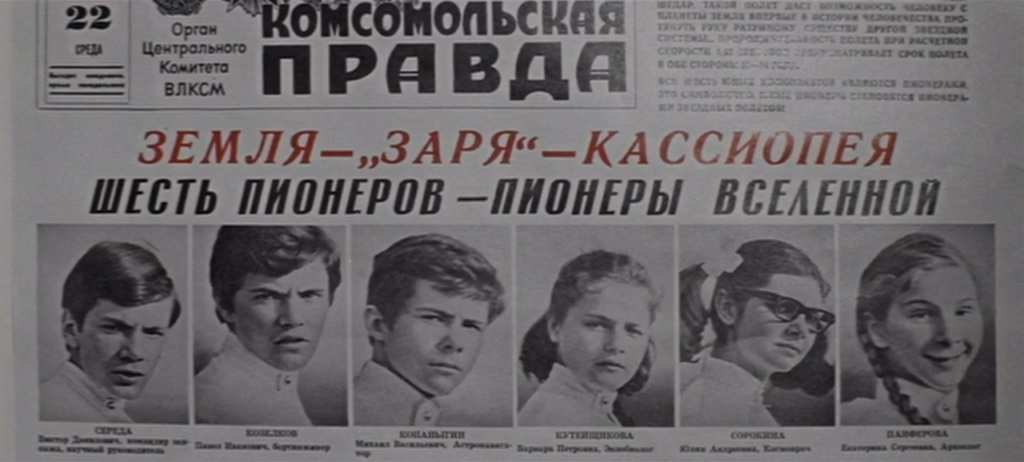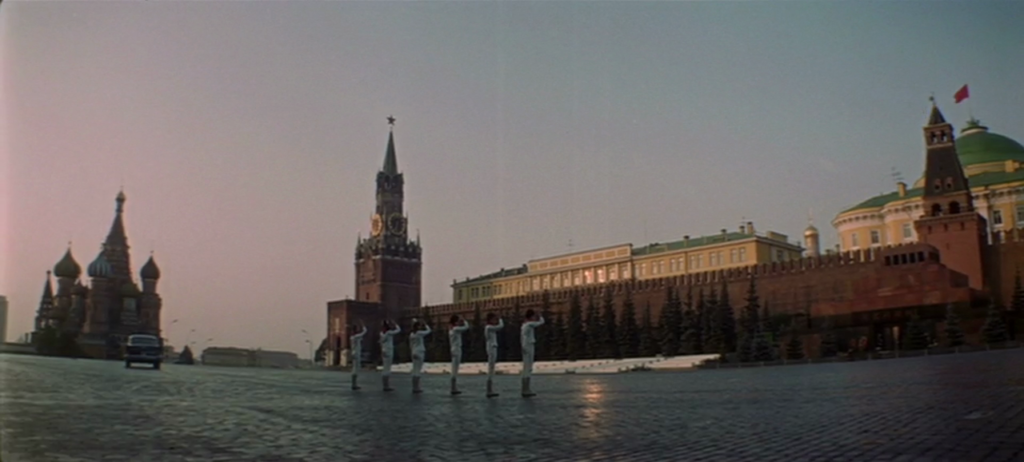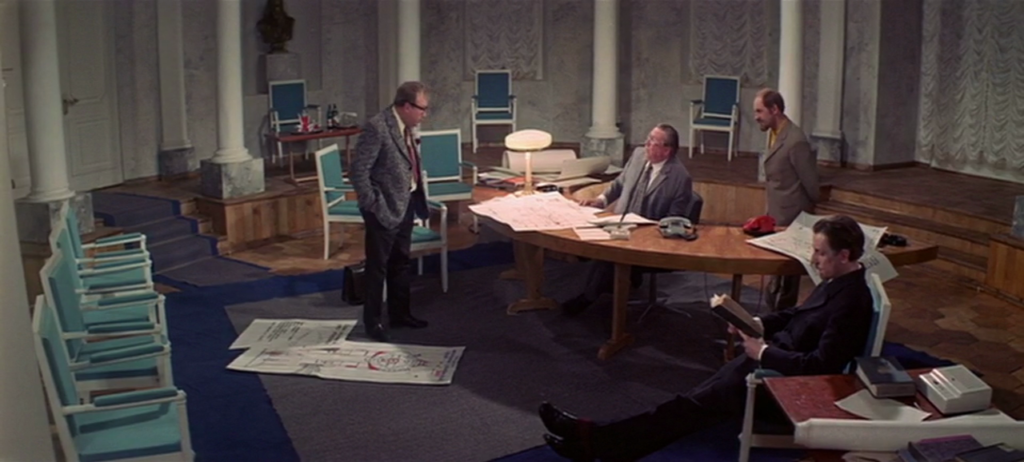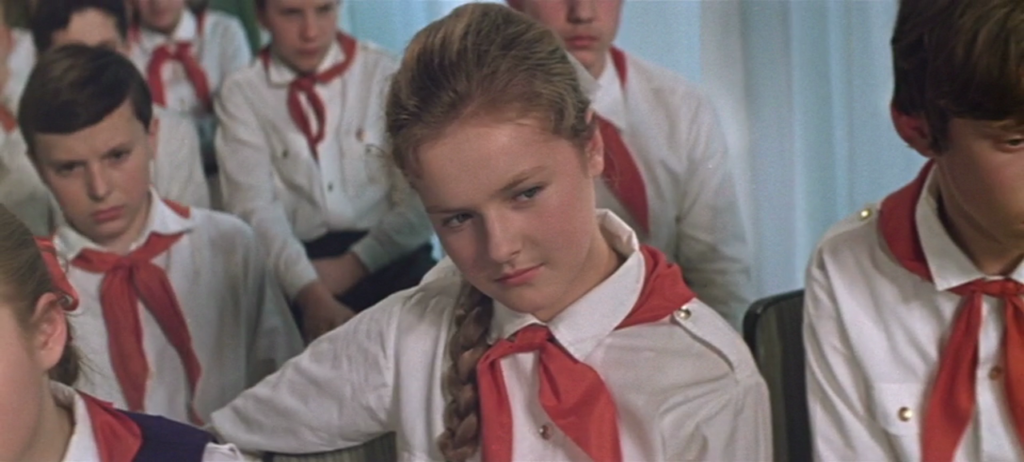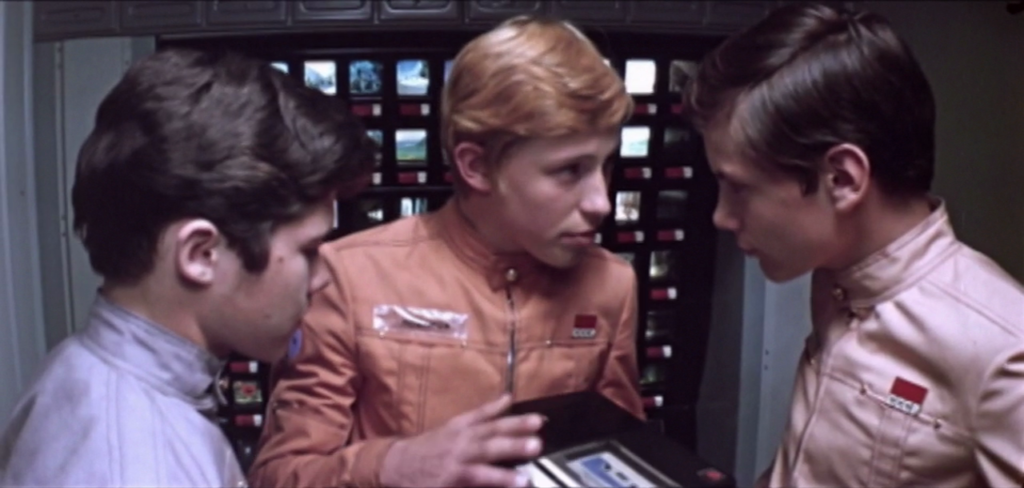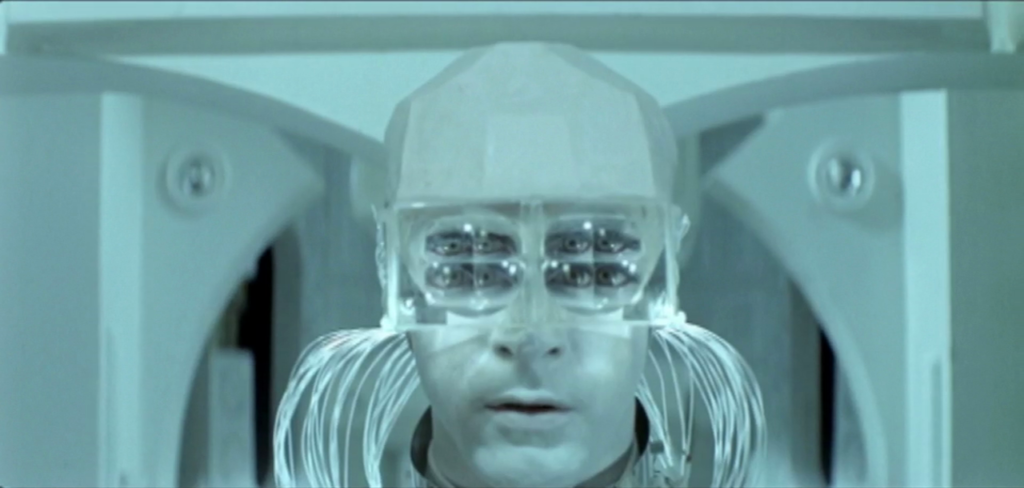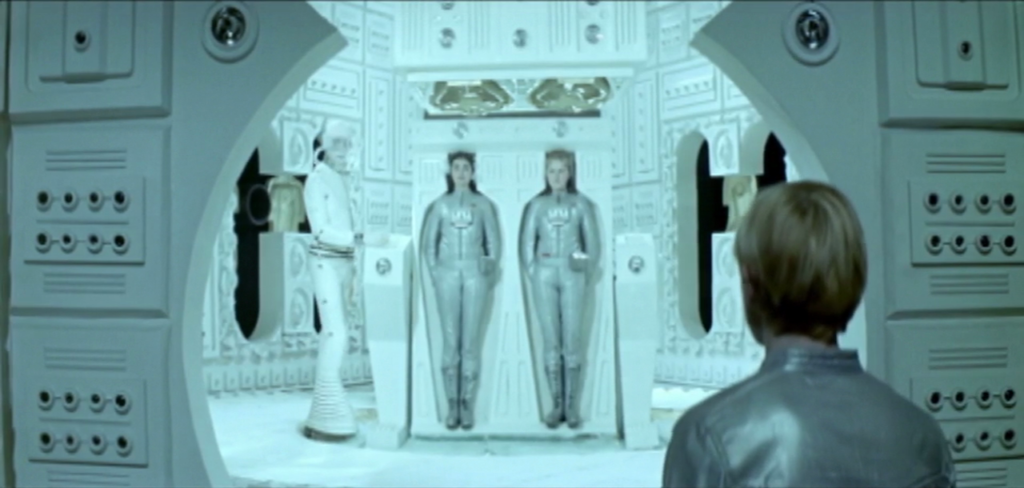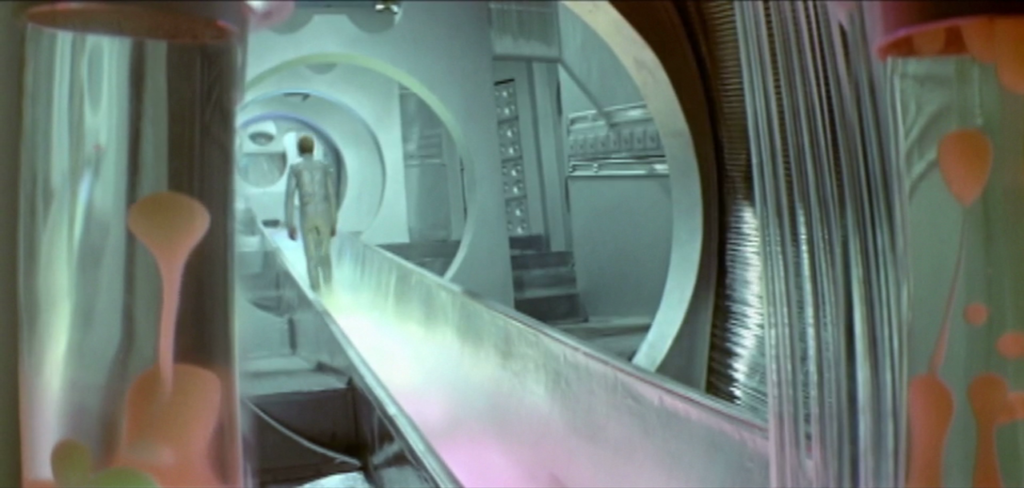Moscow: Cassiopea (Москва́ — Кассиопе́я) and Teens in the Universe (О́троки во Вселе́нной) are a duology of mid-1970s Soviet science-fiction comedy films, directed by Richard Viktorov (Ричард Викторов), and written by Isai Kuzentsov (Исай Кузнецов) and Avernir Zak (Авенир Григорьевич Зак). Originally intended to be a single film, a glut of footage enabled producers to split it into two eighty minute features.
The films are enduringly popular in the former Soviet Union, and were unavailable in any digital format until a 2007 DVD release, in 2016 both films were added to iTunes in high-definition, so I thought I’d take a look.
Synopsis
When Russian scientists detect a signal from the distant star suggesting intelligent life, Cassiopea, a teenage genius member of the ‘Pioneers’ proposes a mission to investigate the signal. Since the journey will take 27 years, a teenage crew seems ideal.
Aided by the mysterious I.O.I., the six teenager crew of the Spaceship ‘Dawn’ set out on their 27 year journey with only their wits, a 1970s holodeck, and a clumsy stowaway to aid them.
After taking a shortcut through hyperspace the crew arrive almost instantly at their destination only to discover the remains of a civilization that has apparently been overthrown by their robots, whose only directive is to make everyone “happy”.
How will our crew solve this conundrum and get back to earth ? Will the captain every find out who wrote him a love letter ? Will the workers ever control the means of production ?
Review
If I had to describe it I’d say it’s a mash-up of Star Trek and 2001 with touches of Doctor Who. However western audiences are going to have some trouble with it: it’s a bit slow and whimsical, additionally the subtitles aren’t the best quality, which won’t help the uninitiated with the complexities of Russian names.
But beyond those simple east/west cultural differences there are mechanical issues: there are too many characters to share screen time, and a bizarre framing mechanism that involves a all-powerful narrator who serves primarily to undermine dramatic tension.
To be clear: I actually enjoyed both features, but unless you are looking specifically for some 1970s Russian sci-fi I’d steer clear.
The director would later go on to direct the more serious Per Aspera Ad Astra (variously titled: Че́рез те́рнии к звёздам/Through the Thorns to the Stars/To the Starts by Hard Ways/Humanoid Woman), an adaptation of the novel of the same name by Kir Bulychev (И́горь Все́володович Може́йко), whose bad dubbing featured in an early episode of MST3K. Per Aspera Ad Astra recycled some of the sets used in these two features.
iTunes HD presentations
I remember reading the very strict BBC submission standards for high-definition content a long time ago, and thinking that it’s a wonder that they accept anything. iTunes appears to be less fussy.
Both masters are obviously up-scaled from standard definition and presented at 25 frames per second.
Of the two films, Moscow-Cassiopea gets the better the treatment, the 2.35:1 aspect ratio image ( 960 x 556 ) is acceptable, I would guess it has been up-scaled from a standard definition anamorphicly enhanced 16:9 PAL master, though there is mild to moderate edge-enhancement throughout. The total running time is 1:19:51, which I believe is uncut, since it seems to match the film length of 2279m of film noted here. The average bit-rate is 3.92 megabits per second with a peak of 11. The remastered stereo soundtrack is encoded as an AAC at a nominal 160kbps. Copyright is noted in metadata as 1973 Ruscico.
Teens in the Universe by comparison is more borderline, presented at 2.2:1 (960 x 578), it is extremely soft it looks like it has been sourced from a 4:3 PAL master. It has a running time of 1:19:38 and an average bitrate of 3.92 megabits per second, with a peak of 8.35. It’s soundtrack is purely monophonic, encoded as a stereo AAC track with a nominal bitrate of 160 kbps. Metadata reports copyright as 1974 Ruscico.
Compared to the RUSCICO DVD
I compared the iTunes versions of both films to the RUSCICO DVD. It’s worth noting that the iTunes version was also issued by the same company, and is likely based on the same underlying film-to-video transfer.
For Moscow Cassiopea it’s a coin toss between the iTunes and DVD versions. The iTunes version is slightly zoomed, probably to eliminate corner vignetting visible on the DVD transfer, otherwise the transfers are very similar, and obviously from the same film source, most likely the same transfer. The DVD may be a hair sharper, and possibly have slightly more contrast, though I could only see very minor differences comparing frame-to-frame. The DVD features a remastered 5.1 Russian soundtrack, which I’ll talk about later, as well as a Russian mono soundtrack, presumably the original.
Teens in the Universe image is a similarly slightly zoomed on the iTunes version, and has possibly been slightly smoothed compared to the DVD, possibly to reduce stair-stepping due to the low resolution of the source. The DVD image is also low resolution but looks better than the iTunes version. Additionally the DVD also has a remastered 5.1 soundtrack. I’d definitely choose the DVD presentation in this case.
Remastered stereo and 5.1 soundtracks
Both films were originally monophonic, however 5.1 and stereo soundtracks were produced in 2007 for the DVD release.
Both the stereo and 5.1 remastered soundtracks appear superficially identical, stereo separation is only significantly present during sequences with music and effects. Dialogue sequences have possible been enhanced with slight multi-channel reverb, though it is done tastefully and adds a little air to what would otherwise be a very flat presentation. The LFE content of the 5.1 track appears to have just been built from a low-pass filter of the music and effects track.
Some comments on a Russian forum devoted to the film suggests that that changes may have been made to the soundtrack. Comparing to the monophonic soundtrack on the DVD, it certainly seems like the music and effects are more prominent in the stereo and 5.1 mixes. Not being intimately familiar with the original I can’t say I could immediately hear content difference between them. Buyer beware.
Conclusion
While the movies themselves are interesting, the iTunes HD presentations are not up to snuff. For failing to be HD both films score extremely poorly. If you want the absolute best presentation of this double feature, the DVD is your best bet. However it is quite expensive, and encoded in the PAL format, which may not without transcoding with an NTSC television. If you simply want to watch the films once, an iTunes rental of Moscow: Cassiopea and Teens in the Universe is a reasonable alternative.
iTunes HD Screenshots Moscow: Cassiopea
iTunes HD Screenshots Teens in the Universe
FTC Disclosure: I am an iTunes and Amazon affiliate advertiser, if you click on the above links to iTunes or Amazon I may earn a few percent of any purchases you make there.

